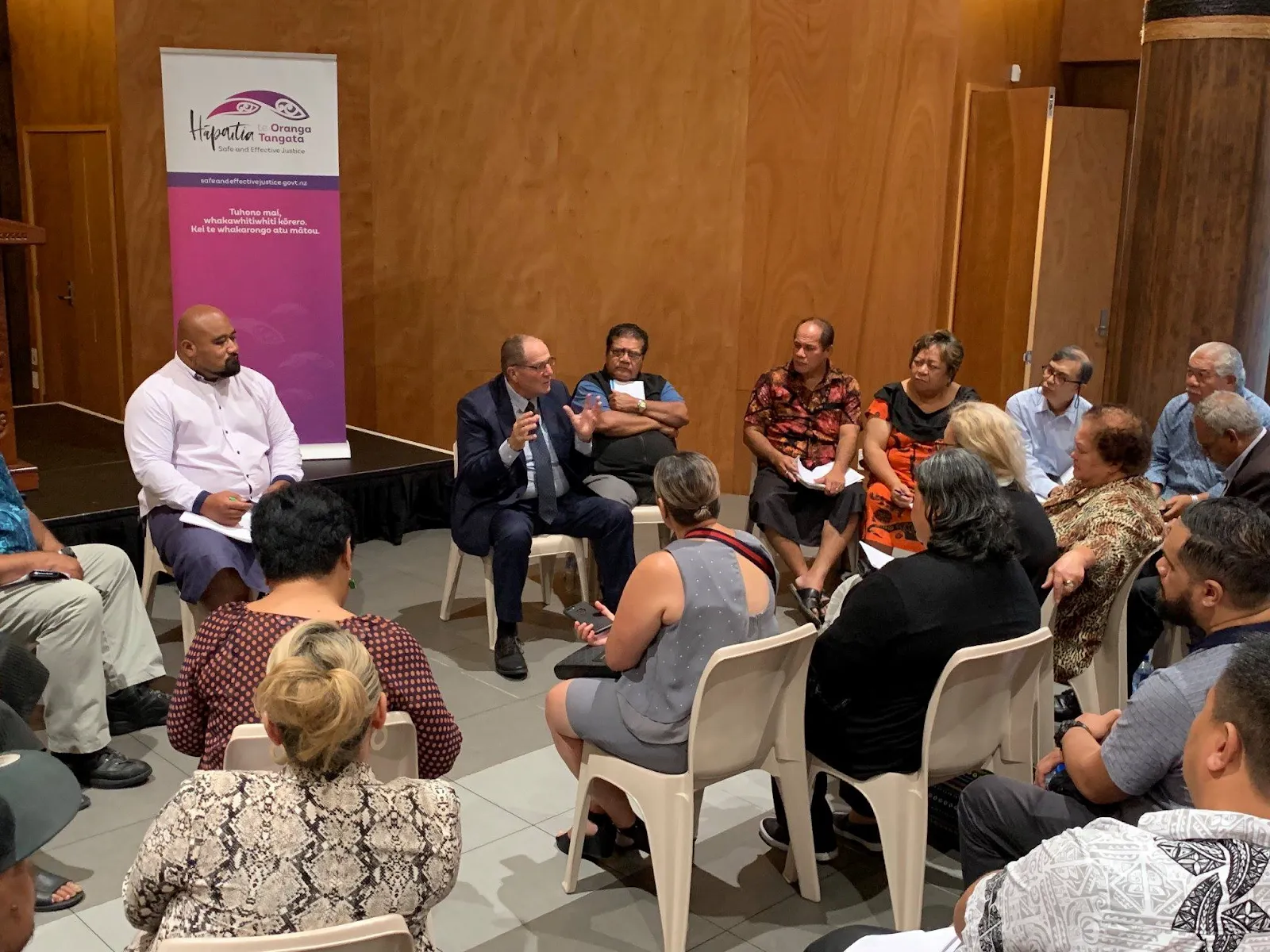Lives behind the numbers: Making sense of criminal justice reform
Chester Borrows - 1st November 2019
By Chester Borrows, former Chair of Te Uepū Hāpai i te Ora - the Safe and Effective Justice Advisory Group, which recently completed its work to inform the Government on reform for New Zealand’s justice system. He is a former Minister of Courts
If New Zealand is to make a genuine, sustained transformation of our justice system, we must base our action on facts and carefully-considered reason. The numbers tell a story of a justice system that is failing our people, and failing on nearly all counts.
We cannot ignore the facts about what works and what doesn’t.
Yet behind those numbers are the lives of real people, often lived in circumstances most New Zealanders would struggle to comprehend. The justice system is a picture of humanity at its darkest edges, full of untold grief, desperation, anger and hurt.
When seeking to address social issues, we cannot ignore the emotions either.
The challenge for members of Te Uepū Hāpai i te Ora – the Safe and Effective Justice Advisory Group and me, was to carefully consider the facts alongside the emotional context in which offending occurs. Whether they are people who have been harmed or the people who have caused harm, their hurt and grief cannot be reduced to mere data.
However, those facts provide the foundation to understand the need to transform our justice system. Here are some that all New Zealanders should know about our justice system.
With around 10,000 people behind bars at any one time, and thirty thousand cycle through our prisons in any one year. New Zealand has one of the highest incarceration rates in the OECD – currently ranked fifth at 203 people per 100,000, but this figure is 670 per 100,000 for Māori.
By comparison, the USA leads this unenviable ranking with 655 per 100,000, Australia’s rate is 172, the United Kingdom’s around 140, and the Philippines’ – under strongman Rodrigo Duterte – is 179. At the other end of the scale, Japan’s is 41 and India’s is only 33 per 100,000.
Our recidivism rate is far too high – many who go through the system are back before the courts and back in prison in a perpetual and expensive cycle. Around 61 percent of people are reconvicted within two years following release from prison, with 43 percent of people actually re-imprisoned.
Māori are disproportionately represented in the justice system at every level. Comprising around 17 percent of the total population, Māori make up 52 percent of the people currently in prison. 37 percent of Māori had been a victim of crime in the previous 12 months, compared to the New Zealand average of 29 percent.
Māori were 38 percent of people proceeded against by Police, 42 percent of adults convicted and 57 percent of adults sentenced to prison. Half of all the Māori and Pacific boys born in New Zealand in 1978 now have a criminal conviction.
Mental health (including alcohol and other drug addictions) has a huge impact on our justice system, and is overwhelmingly a driver of harm caused by people. Yet for many, a prison is the first – and often the only – place where they will receive treatment.
62 percent of people in prison were assessed as having had a diagnosable mental health or substance use disorder in previous 12 months, and 87 percent were assessed as having had a substance use disorder at any point in their life and 47 percent were assessed as having had a substance use disorder in the last 12 months.
My colleague on the Advisory Group, victims advocate Ruth Money, says that prison is not somewhere that is ever going to help with mental health rehabilitation needs, and from what we’ve learned on our journey it’s hard to disagree.
We’re locking up more and more people, for increasingly-longer sentences, and far too many of them are Māori. We’re funnelling people with recognisable mental health issues into an incredibly harsh environment, yet the prevailing mantra is that the only solution is to get tougher on crime. This is at a time when crime rates have long-run trend of decreasing.
New Zealand’s approach to justice is failing our people – it is not healing the harm caused for victims nor the harm in the lives of offenders too. The evidence suggests that unless we heal the harm in the lives of people who have caused harm, the odds are that they will continue to cause harm.
But the emotional position, that has driven 30 years of tough-on-crime punitive policies, is that people who cause harm deserve no help. This completely ignores the fact that most of the people who cause harm have usually had horrific experiences visited upon them.
On our travels around New Zealand discussing justice, the strongest support for punitive approaches seemed to come from those who have little lived experience of the justice system. This is backed up by the fact that only four percent of people experience nearly half of all crime (47 percent).
Behind all these numbers are experiences; some of the worst experiences people could ever confront. We must acknowledge that there is life-long trauma visited on people who never asked for it and never deserved it, and that the justice system isn’t helping them to heal.
Few of the people we spoke to who had been seriously harmed by crime reported positive experiences of the criminal justice system; many told us it produces further harm. For many victims, the justice system leaves them with a sense that justice has not been done. It is disempowering, confusing, slow and disrespectful.
The justice system can only be improved if we all shoulder the load, share our knowledge, and make our voices heard. Only then can we design – in genuine partnership with Māori – a justice system that is safe and effective for all New Zealanders.

Chester and group PASIFIKA FONO